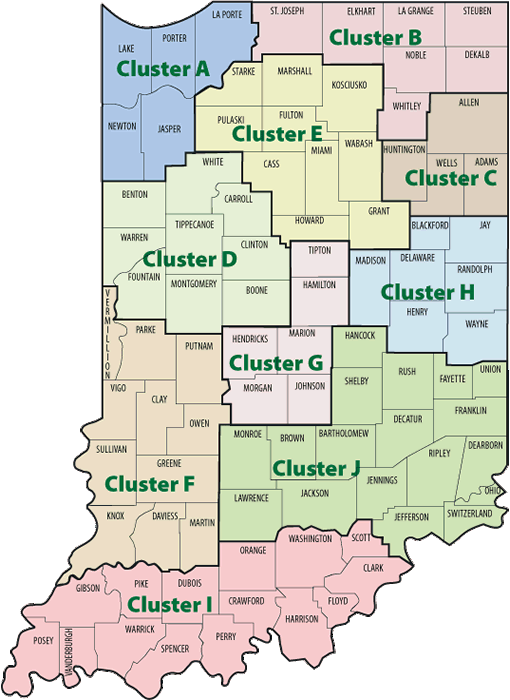Indiana Early Intervention Program
While public school systems are legally required to provide access to services in order to give a free, appropriate public education (FAPE) to children with a qualifying disability, different states may implement these programs in different ways. As long as the programs comply with federal law, your state may develop its own special education policies and agencies. Indiana has an early intervention program called First Steps. The First Steps policies emphasize that it takes a family-centered approach. It is not a centrally located state agency, but rather First Steps is a network of locally based professionals and resources.
Referring a Child
Indiana families are typically referred to the First Steps program by the family doctor, social service agency caseworkers, or other professionals who work with the child. You can also contact the program directly to refer your child. Contact your local System Point of Entry (SPOE) office. A list is available here. Tell the representative that you are concerned that your child might have a speech issue. As soon as you call the office, a 45-day timeline begins. If your child is found to be eligible for services from First Steps, the state requires that he have a written treatment plan, called an Individualized Family Service Plan (IFSP), no later than 45 days from the date of the referral.
Intake Appointment
The next step in the program is the intake appointment. The representative will make an appointment for a time and a place that is convenient for you. He will also provide the name and contact information of the intake coordinator. The intake coordinator will meet with you to discuss your entire family’s concerns for your child. She will also discuss the First Steps program, explain the services that are available, explain your family’s rights, and answer any questions you might have. You should receive a copy of the procedural safeguards, or your family’s rights. The intake coordinator will also collect any documentation related to your child’s potential speech and language issues, as well as complete the paperwork necessary for an assessment.
Assessment
The intake coordinator will also set up an assessment for your child with the Eligibility Determination Team (EDT). The assessment activities that are used will be customized to your child’s specific speech and language issues. For example, a speech-language pathologist (SLP) may assess your child’s receptive language skills, or how well he understands and interprets language. The purpose of the assessment is to gather information for the Eligibility Determination Meeting (EDM).
Eligibility Determination Meeting
The EDM is held to discuss the results of the assessment and to determine if your child is eligible for services under First Steps. Eligible children must be under three years old with a developmental delay, or with a diagnosed condition that is highly likely to result in a developmental delay. You should receive a written copy of the assessment results and a meeting confirmation notice 10 days prior to the EDM.
In some cases, an IFSP meeting is held at the same time as the EDM meeting if your child is found to be eligible for services. Check out our previous post on IFSPs for more information. Your child’s IFSP will outline the services that your entire family will receive. This might include assistive technology services, speech therapy, physical therapy, and even transportation assistance.
Additional Information
The service coordinator for your child’s IFSP will discuss service providers and financial information with you. You have the option to choose a service provider outside of the First Steps matrix. The Indiana First Steps program strives to provide equal access to healthcare services for families of all incomes. You may be required to shoulder a portion of the financial burden. This is calculated with a sliding scale table that is based on the federal poverty guidelines. For example, a family of four with an income of $56,098.50 is expected to pay $0.75 per 15 minutes of service, with a monthly maximum of $48. Talk to your service coordinator about any additional financial resources that might be available to you.





